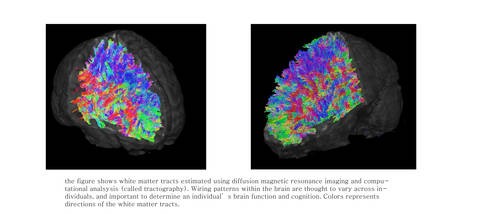Editor's note: Ketamine is a anesthetic drug which has the potential for addiction as well as multiple sides short and longterm effects, especially when used in combination with other drugs or medications. Ketamine should only be used under the close supervision of an experienced health care provider. Do not attempt to self-medicate or take ketamine from an unknown source. The statements below regarding ketamine have not been conclusively verified by scientific studies. Ketamine is not FDA approved for depression or other types of mental disorders.
 Scientists have always been curious about how the human brain works. One of the most exciting discoveries in recent years is how fast ketamine can treat depression. Some people have found it useful for mental health issues, if taken with appropriate supervision..
Ketamine may work when other antidepressants don't. But what makes it so powerful? And how does it help?
This blog post will look at four main ideas scientists have about how ketamine fights depression. Join us as we learn more about ketamine and why it's such a big deal in mental health care.
1. The Role of NMDA Receptors
At the core of ketamine's rapid action is its interaction with N-methyl-D-aspartate (NMDA) receptors in the brain. These receptors play a crucial role in regulating synaptic plasticity, which facilitates learning and memory. The surge in glutamate stimulates the activation of another type of receptor, known as AMPA receptors.
Enhanced activity at AMPA receptors is linked to the relief of depression symptoms. This pathway is vital for the antidepressant effects observed after ketamine administration. This highlights its unique mechanism in contrast to conventional medications.
(more…)
Scientists have always been curious about how the human brain works. One of the most exciting discoveries in recent years is how fast ketamine can treat depression. Some people have found it useful for mental health issues, if taken with appropriate supervision..
Ketamine may work when other antidepressants don't. But what makes it so powerful? And how does it help?
This blog post will look at four main ideas scientists have about how ketamine fights depression. Join us as we learn more about ketamine and why it's such a big deal in mental health care.
1. The Role of NMDA Receptors
At the core of ketamine's rapid action is its interaction with N-methyl-D-aspartate (NMDA) receptors in the brain. These receptors play a crucial role in regulating synaptic plasticity, which facilitates learning and memory. The surge in glutamate stimulates the activation of another type of receptor, known as AMPA receptors.
Enhanced activity at AMPA receptors is linked to the relief of depression symptoms. This pathway is vital for the antidepressant effects observed after ketamine administration. This highlights its unique mechanism in contrast to conventional medications.
(more…)
 Scientists have always been curious about how the human brain works. One of the most exciting discoveries in recent years is how fast ketamine can treat depression. Some people have found it useful for mental health issues, if taken with appropriate supervision..
Ketamine may work when other antidepressants don't. But what makes it so powerful? And how does it help?
This blog post will look at four main ideas scientists have about how ketamine fights depression. Join us as we learn more about ketamine and why it's such a big deal in mental health care.
1. The Role of NMDA Receptors
At the core of ketamine's rapid action is its interaction with N-methyl-D-aspartate (NMDA) receptors in the brain. These receptors play a crucial role in regulating synaptic plasticity, which facilitates learning and memory. The surge in glutamate stimulates the activation of another type of receptor, known as AMPA receptors.
Enhanced activity at AMPA receptors is linked to the relief of depression symptoms. This pathway is vital for the antidepressant effects observed after ketamine administration. This highlights its unique mechanism in contrast to conventional medications.
(more…)
Scientists have always been curious about how the human brain works. One of the most exciting discoveries in recent years is how fast ketamine can treat depression. Some people have found it useful for mental health issues, if taken with appropriate supervision..
Ketamine may work when other antidepressants don't. But what makes it so powerful? And how does it help?
This blog post will look at four main ideas scientists have about how ketamine fights depression. Join us as we learn more about ketamine and why it's such a big deal in mental health care.
1. The Role of NMDA Receptors
At the core of ketamine's rapid action is its interaction with N-methyl-D-aspartate (NMDA) receptors in the brain. These receptors play a crucial role in regulating synaptic plasticity, which facilitates learning and memory. The surge in glutamate stimulates the activation of another type of receptor, known as AMPA receptors.
Enhanced activity at AMPA receptors is linked to the relief of depression symptoms. This pathway is vital for the antidepressant effects observed after ketamine administration. This highlights its unique mechanism in contrast to conventional medications.
(more…)





